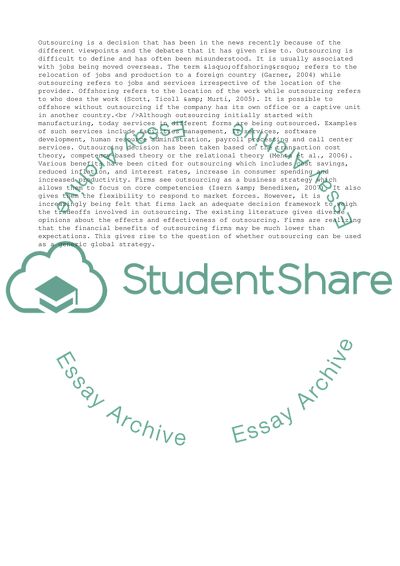Cite this document
(Effects or effectiveness of Outsourcing as a generic global strategy Research Proposal, n.d.)
Effects or effectiveness of Outsourcing as a generic global strategy Research Proposal. https://studentshare.org/management/1720852-effects-or-effectiveness-of-outsourcing-as-a-generic-global-strategy
Effects or effectiveness of Outsourcing as a generic global strategy Research Proposal. https://studentshare.org/management/1720852-effects-or-effectiveness-of-outsourcing-as-a-generic-global-strategy
(Effects or Effectiveness of Outsourcing As a Generic Global Strategy Research Proposal)
Effects or Effectiveness of Outsourcing As a Generic Global Strategy Research Proposal. https://studentshare.org/management/1720852-effects-or-effectiveness-of-outsourcing-as-a-generic-global-strategy.
Effects or Effectiveness of Outsourcing As a Generic Global Strategy Research Proposal. https://studentshare.org/management/1720852-effects-or-effectiveness-of-outsourcing-as-a-generic-global-strategy.
“Effects or Effectiveness of Outsourcing As a Generic Global Strategy Research Proposal”. https://studentshare.org/management/1720852-effects-or-effectiveness-of-outsourcing-as-a-generic-global-strategy.


